The bike packed, the bikebox booked and a boarding pass on my phone, it was breakfast time.
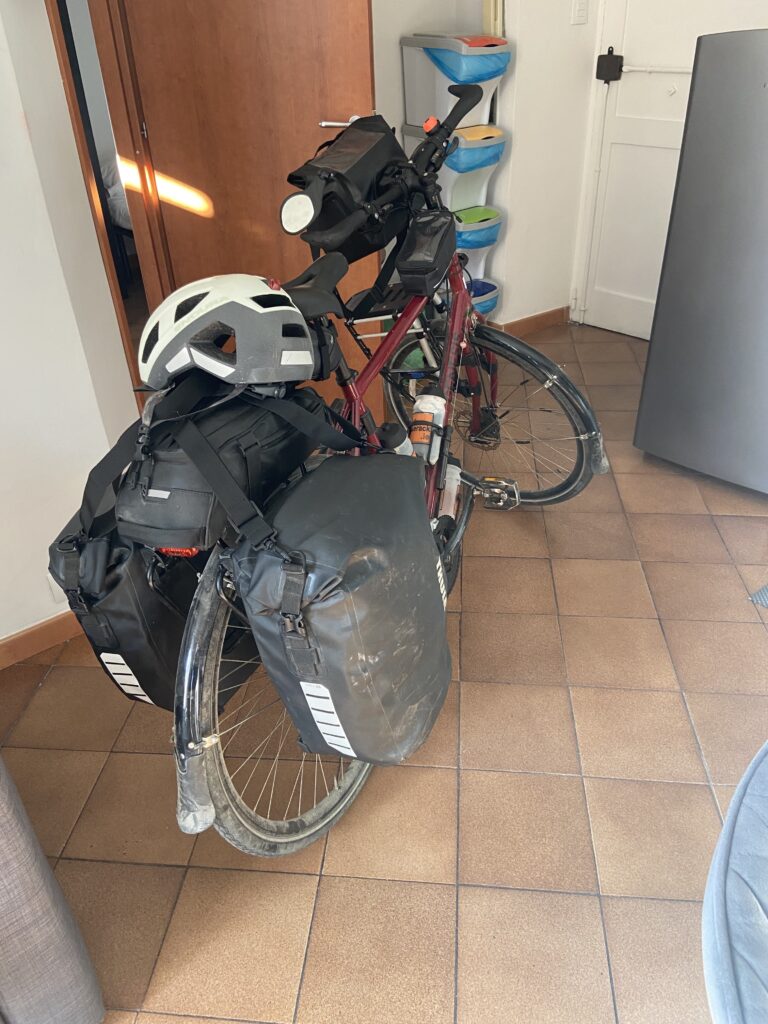
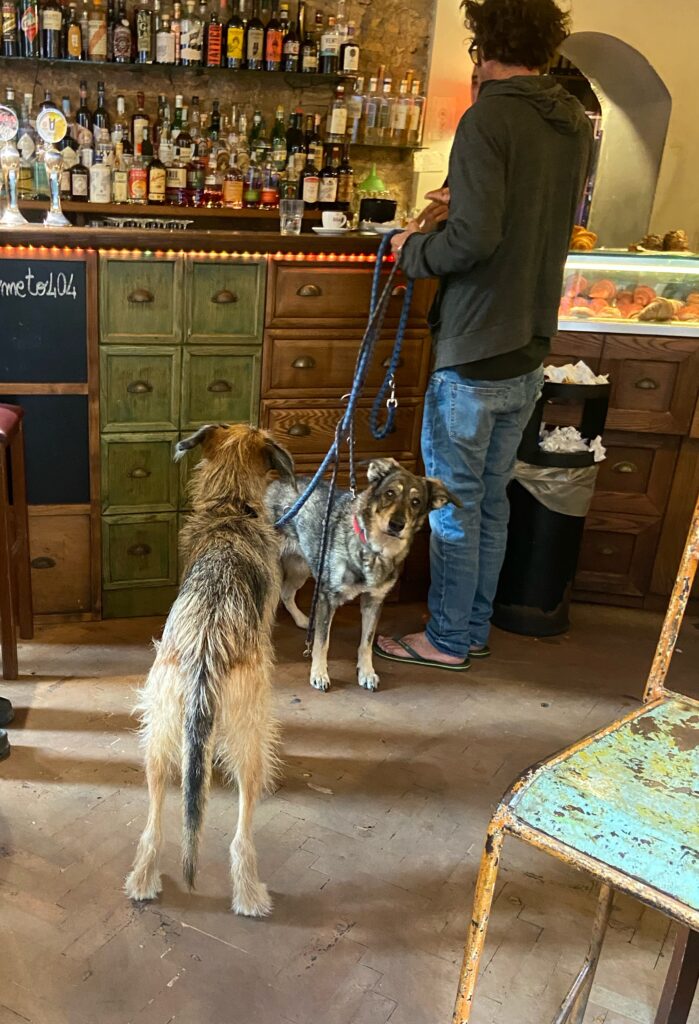
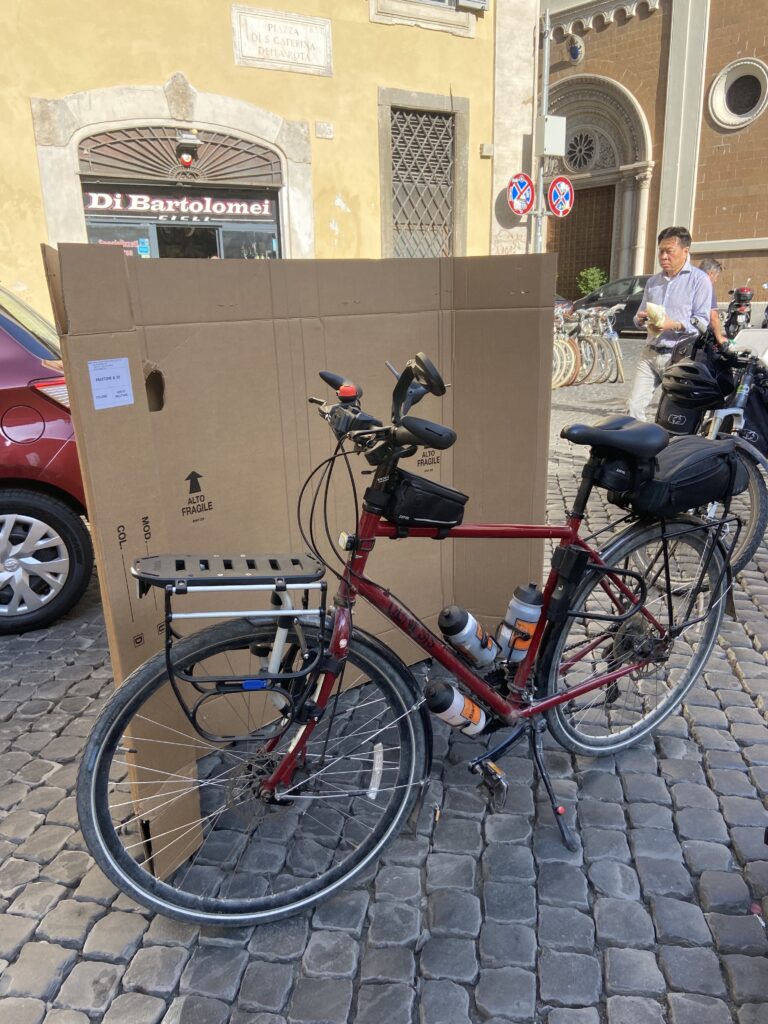
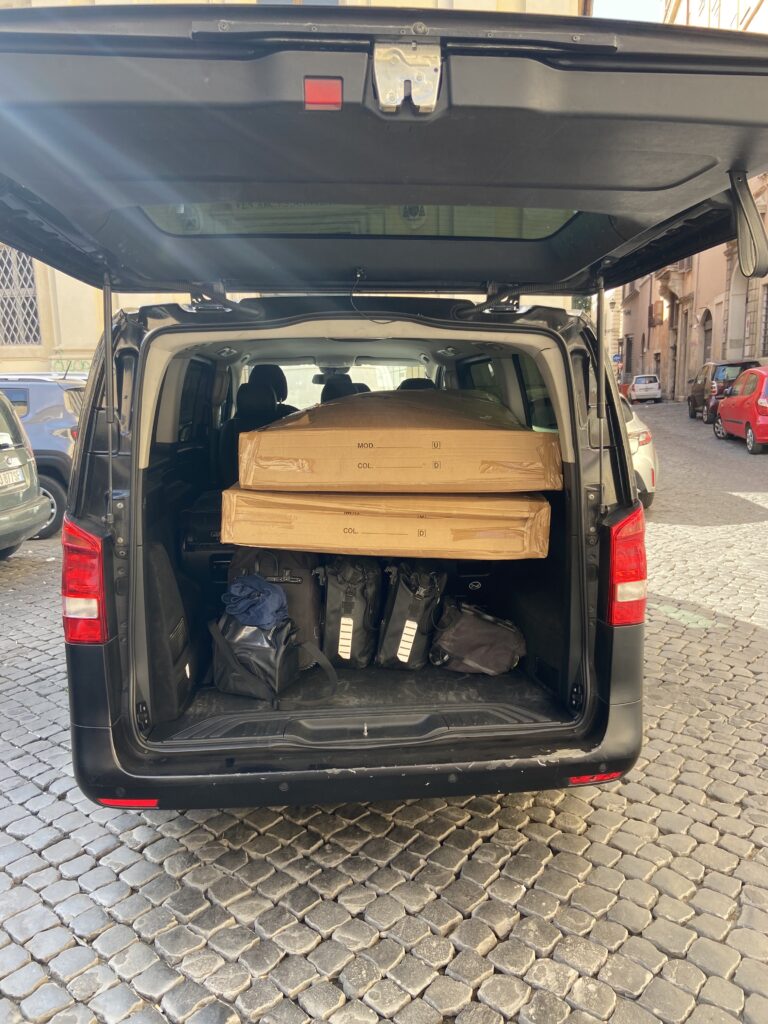
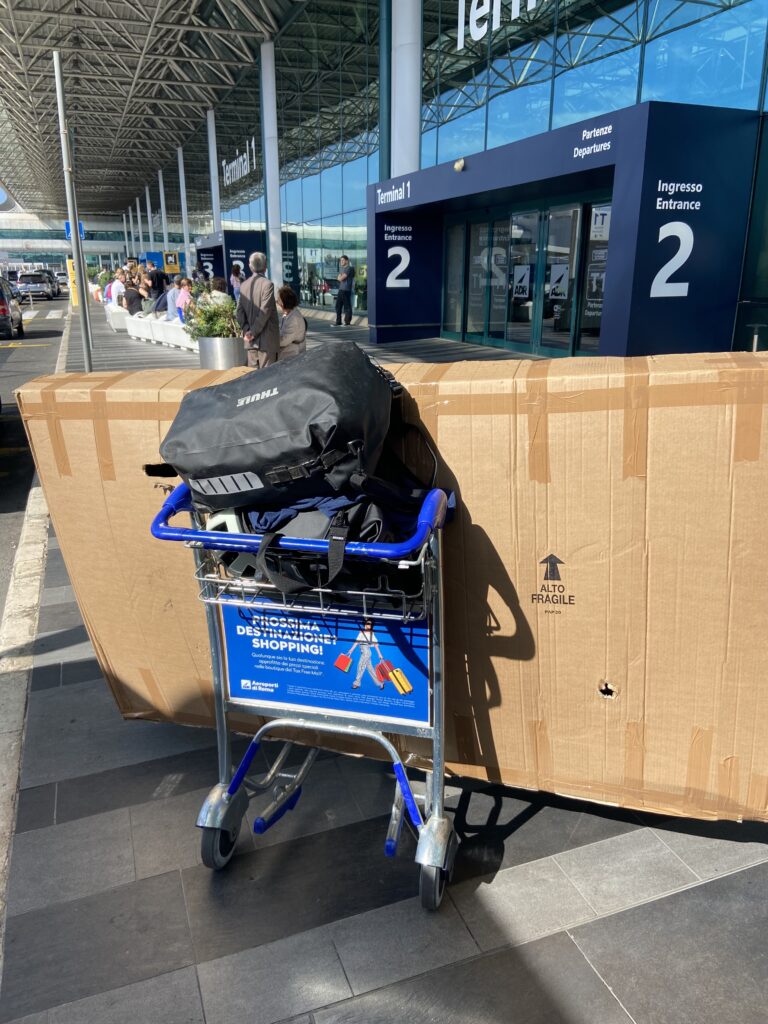
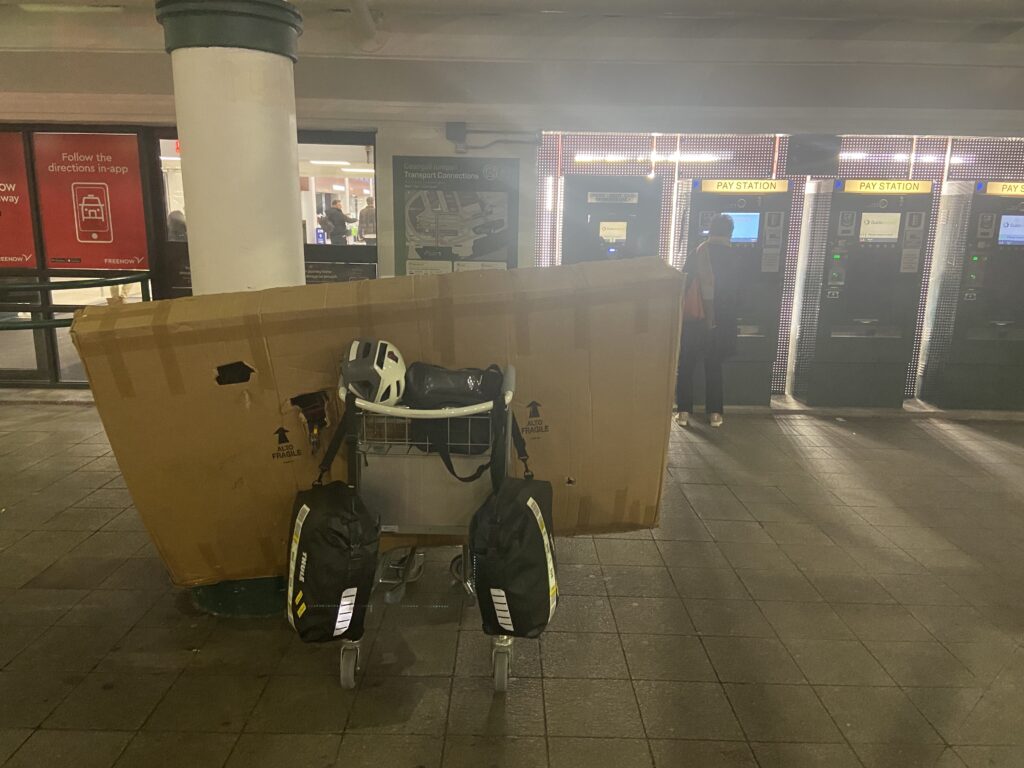
We chatted over a couple of croissants and two doppio espressos while an African swept the street beside us. Despite not sweeping with much enthusiasm, many passers-by gave him some coin. Perhaps he didn’t want to finish too soon. Sometimes he held out his cap, especially to tourists but mostly, it was Italians who first tapped his shoulder or wished him buongiorno or just handed him a coin or two. As did we. He smiled and spoke in several languages, possibly using well practiced phrases but catching the eye of everyone that passed. He was good at this, really good. We wondered about his backstory but there are many stories like his on the streets of Rome. And yet, in this Trastavere neighbourhood, most folk were being generous.
We talked about the poverty on the streets of Rome. There are people who chose to live on the streets but they are far fewer than the people who have no choice. Oxygen starvation caused me to recall the Irish guy who sold newspapers in London’s Piccadilly Circus more than a decade ago. It turned out that he commuted from Ireland every week, working his spot five days a week to raise a family. You might call this an urban myth except it was revealed to me in a newspaper article and stayed with me because I also commuted to London for over twenty years. These are just my thoughts, one leading to another and there’s no comparison intended – hard lived street lives are often all the tougher for being a form of enslavement – imagine having been crippled by your parents to improve your begging success or ending up selling USB power packs in St Peter’s Square.
I wandered around a market near the bike shop and while buying a fruit drink, I asked the very un-Italian vendor where he came from. Afghanistan. Curious, I spoke to several vendors hawking ilth I’d never buy. There was an Iranian, a Palestinian then a couple of Syrians and finally I overheard a Sicilian telling an American how his brothers had lived in The Bronx for over ten years.
Our bikes were being packed into boxes and when we got back to bike shop, they were already loaded into a minivan-taxi. It was noon and time to head to both airports. We went to Ciampino first, offloaded Chris and his bike, before heading to Fiumicino for me. Two RyanAir flights yet different airports. We were lucky because travelling back from Ciampino we encountered a van blazing on the opposite carriageway with firefighters and paramedics already in attendance and working hard. The many-kilometre traffic jam could have seriously affected both of our departures.
Our Roman driver was also a world traveller in a former life. He cooked his way across the continents. He said of living in London for two years that he put a cross on his calendar every day there was full sunlight. Just seven crosses and he segued to saying the seven hills of Rome would always be his home though he said he missed pubs in Ireland and the soft meat in Britain. He didn’t miss Egypt or Tanzania and regretted that it was so cold he abandoned his journey to see the glaciers in Chilean Patagonia.
My bikebox got stuck in the X-ray machine for oversize baggage. I was prevented from helping to extract it for security reasons and watched as the box was manhandled and torn before it even left the building. It turned out that the handlebar stem protruded and judging from what I saw later in Dublin, it got stuck in several more places too.
My flight was fine though it was delayed and then it took an hour to get all my belongings together in Dublin. Other passengers helped me get the bikebox through the customs sniffer portal and somehow my wife and I got the bicycle into her car, having unpacked it to reveal the damaged handlebar stem.
I was home, fed and asleep before midnight.
My last waking thoughts were of magpies. I travelled with chiffchaffs and herons and was never far from magpies. They are hard to miss because they are so strikingly shaped and coloured and communal and garrulous and colonial.
I became convinced that they had regional accents. I struggle to hear differences of musical pitch and though I am naturally losing the high frequencies as I get older, I remain sensitive to patterns in rhythm, beat, structure and tempo. The magpies in Tuscany sounded markedly different to those I heard in Leinster and quite distinguishable from those in The Vosges. I’ve not overlaid sonograms to confirm any of this – I’ll leave that to you.
And here it ends, my friends.
THE END

It’s some achievement….